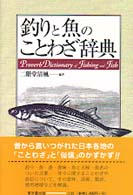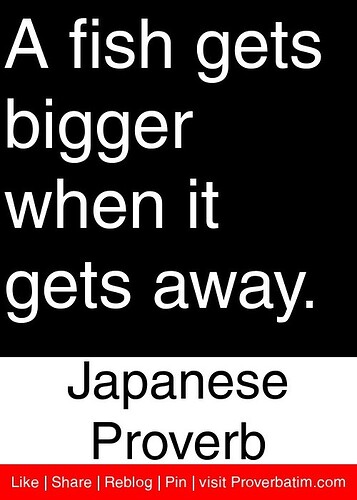Fall Down Seven Stand Up Eight
is an English translation of a Japanese Proverb or Kotowaza that I read in a small book perhaps 20 years ago, and have remembered since then. I also think that translation is more elegant or just easier to remember than an alternate translation - Always Rise After Falling. Meaning to Be Persistent or Tenacious. W. Churchill would have said the same thing with, "Never, never, never give up.
Only recently I found it written in Japanese, 「七転び八起き」and it would be difficult for me to finesse either English translation out of the phrase’s individual words.
Several years ago when Daniel Galhardo was preparing to go to Japan, his second trip I think, he asked if there were any questions we would like him to ask his Tenkara teachers in Japan.
I asked - are there any Tenkara Proverbs or Saying? The answer was there were none.
Tenkara has been practiced for hundreds of years. It surprised me there were none.
Great. Therein lays an opportunity for us to develop some Tenkara Kotowaza.
Come up with short phrases that efficiently convey some truth, good advice, or humor about Tenkara.
Throw the ideas onto the list. Let people stay with the first idea or refine it with clever ways of saying the same thing.
Kotowaza [ 諺, ことわざ ] are Proverbs that come in 3 forms:
Short Sayings [ 言い習わし, iinarawashi ]
Idiom Phrases [ 慣用句 kan’yōku ]
4 Character Idioms [ 四字熟語 yojijukugo ]
But what is the purpose of Proverbs? One definition of their purpose is in the Bible. Proverbs 1:2 , To know wisdom, and instruction: to perceive the words of understanding. Well, a little more wisdom and instruction about fishing and Tenkara and to perceive the the advantages is a desirable thing.
To learn more about Kotowaza: do a web search with something like - Japanese Proverbs and Sayings or What are Kotowaza, to gain a sense of what they are all about, to better keep a touch of spirit of them in our English Tenkara versions. A good start would be this Wikipedia page:
https://en.m.wikipedia.org/wiki/Japanese_proverbs
Or if you’re more adventurous do a google search with ことわざとは何 , What are kotowaza ?
Of course here we are already familiar with one 4 Character Idiom already, 十人十色 .
Often they are made into a more efficient phrase. Using only part of the original longer idiom phrase, perhaps what is typical or stereotypical of Japanese culture. Kill two birds with one stone, becomes, 一石二鳥, 1 Stone 2 Birds. To accomplish two goals at once.
Here are a few I’ve read somewhere, saw somewhere or devised myself. Like most things there are exceptions to the rule, some Kotowaza my contradict another in some situations or all situations. Opinions do vary.
Kotowaza: Casting is half of Tenkara
meaning, source: found in a Dr. Ishigaki blog post, キャッシングが半分のテンカラである。
Kotowaza: Near Side Far Side
meaning: fish the places closest to you first. Then the places farther away.
Kotowaza: Go up tall go down small
meaning: most fish face up stream and will not see you standing tall going up stream, fishing while moving down stream they will, keep a low profile.
Kotowaza: fish with your legs
meaning: if you cover more stream distance you will catch more fish. Popular saying in Japan about Tenkara fishing, a statement made by Go Ishii in a couple of videos.
Kotowaza: Stand back near stand near far
meaning: when fishing the stream nearest you stand back from the waters edge, so fish wont see you. When fishing the far side of the stream stand nearer to the stream. In the right conditions, fast water in middle of the stream, the fish wont see or hear you.
Kotowaza: Walk Zee More See
meaning: follow a Z path on the stream bank inside an imaginary rectangle box. Fish near side of the stream standing back, follow a diagonal path back to the starting point to fish the far side of the stream. And you will see more fish. Because you caught them. This was demonstrated in one of the DT videos, and the Z path pattern is also seen in a diagram in one of the Kuwabara Hirotoki Tenkara books 「桑原玄辰、くわばら ひろとき」
Kotowaza: 10 cm per second no more catch more
meaning: Eddie’s advice, it you move no faster than 10 cm (4in) per second, the fish will not notice you. Old fishing advice.
Kotowaza: Two step kebari three
meaning: Ubi’s advice to simplify your kebari, tie them with only 2 or threes steps. At least sometimes to gain insight into simplifying your Tenkara. [similar I think to Adm William McRaven’s advice to ‘make your bed’. do a simple task well, for a sense of accomplishment, to set yourself up for success the rest of the day or life]
Kotowaza: Rod tip high take fly
meaning: keep the rod tip high to keep line off the water, and to avoid spooking the fish.
Kotowaza: FFFO or F^3O, Eff 3 Oh, Fly First Fly Only
meaning: land the fly first, and only the fly, No line on the water.
Well, I think that gives the general idea. I’ve a few more I’ve been trying to simplify.
Let’s see your Kotowaza ideas. If Daniel didn’t find any we can start now and make our own !
Keep an open mind that someone may be able to improve on your initial idea. Make it more a eloquent or catchy phrase. I’m sure some can be created out of the DT list of 7 Deadly Sins of Tenkara or their Kebari Selection Table or about casting, other topics, and other sources of general angling or Tenkara wisdom.


